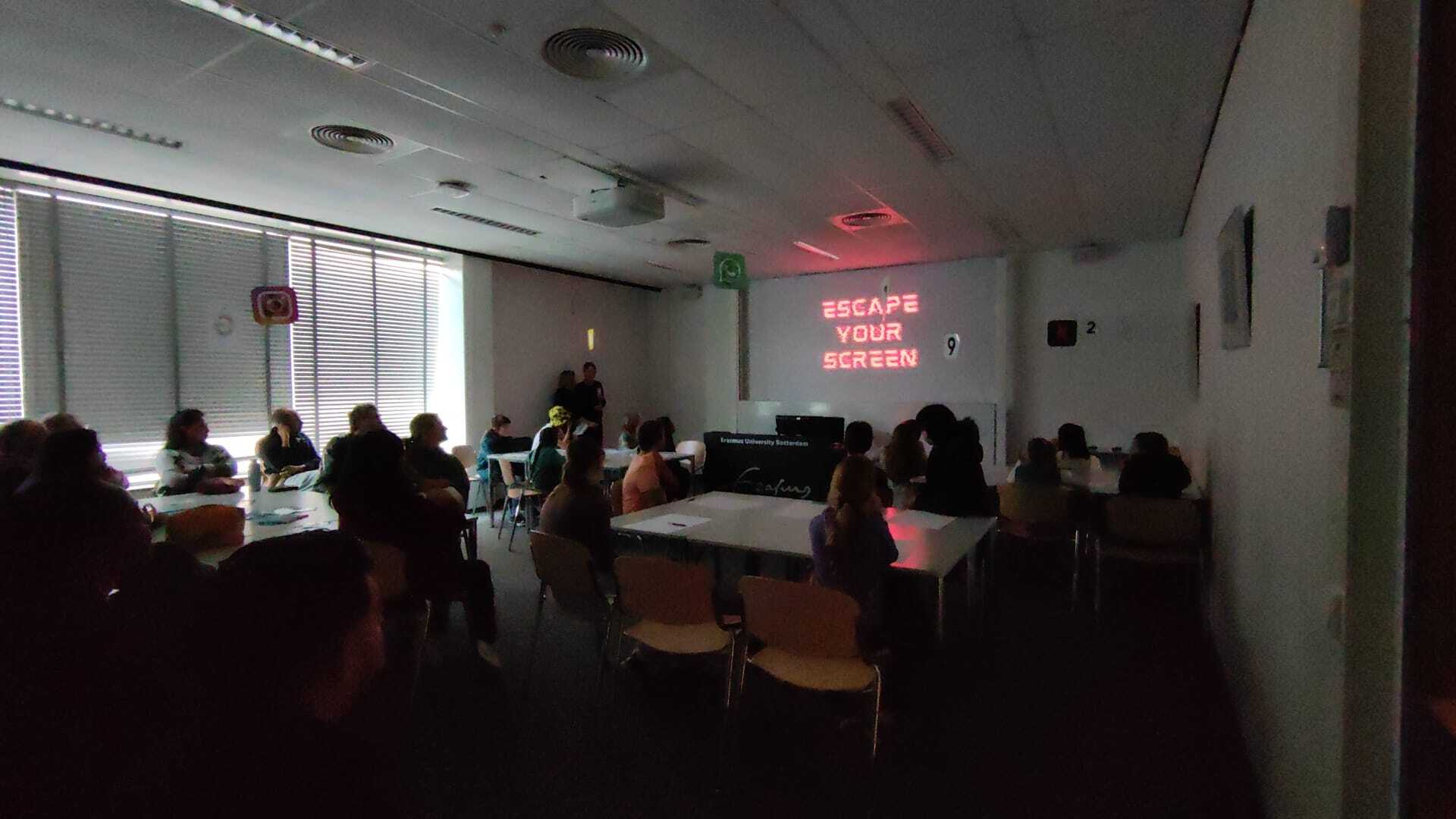Last Sunday, October 6, was Science Weekend, and with two workshops, the Movez lab provided a fun, interactive day for young and old alike! It was a great day, children and parents were incredibly enthusiastic and full of energy.
Escape your screen
One of the workshops was the “Escape your Screen” game, a place where kids were challenged to come up with solutions to their online challenges and with the obstacles they face to behave digitally resilient. They also discovered how their parents/caregivers can help them do this. In this way, children themselves ensure that they can (continue to) discover the online world in a pleasant way!
The children had to work together to find the hints and eventually escape, which went super well! Moreover, they asked each other questions about their online world through peer interviews, which also led to super fun conversations
, says Chiara de Jong. Together with her colleagues Kim Doornhein and Ying Chuck, they made it a great day for the parents and children. Our team is always enthusiastic, but when we spend a day like this working with children and hearing about the challenges and especially the solutions to those challenges, we are absolutely thrilled!
Background of the project
With this Healthy Sprint project, we aim to develop an accessible tool for meaningful participation and engagement of children (ages 9-12) in intervention design and development, specifically in the context of digital resilience.
The secondary goal of the project is to gather insights into which intervention techniques, through the eyes of children, are effective in fostering their digital resilience. And to achieve this, we are using the newly developed (prototype) tool. We co-produced this tool with children and incorporated their feedback into the 'Escape your screen' game
Having received feedback from parents and children, we are now going to fine-tune the tool and make some more adjustments so that it is suitable to be used specifically for Ying Chuck's research. Furthermore, we hope to create a hybrid version of it to make it even more engaging. This means that in the coming months we are going to see if we can have an app developed to digitize some of the game elements
, lets Kim Doornheim us enthusiastically know.
A(I)mong Us: Participate in an Imposter Game and discover what AI (Artificial Intelligence) reveals about you and your chats!
The second workshop held during the weekend of science was A(I)mong us. An online chat game where kids have to catch the imposter together and discover who is lying! Then to dive into the chats and see what amazing things AI can discover about you and the way you chat. Both parents and kids were welcome, to play together as a team or solo!
We received a lot of positive feedback (from parents, kids and organizers) that the kids enjoyed the game and that they also liked the transcribed texts. Usually we hear that the transcribed text is easier to understand (instead of a text in “adult language”), so this was good to hear
, says Jonas Schlicht. Jonas was not alone during the sessions, together with David Blok and Zhanna van Loenen they made it a great day for the parents and children.
Background of the project
From the communication game, they want to learn more about children's communication style (their so-called “stylome”). The concept of the “stylome” states that each person has a unique and distinctive communication style, which is a personal fingerprint and a marker for their unique personality. This fingerprint is reflected not so much in what people talk about (content), but mainly in how people talk about things (communication style). Together with the children, they want to discover if ChatGPT (AI) can learn their communication style and if it can imitate how they talk.
For us, this was the first time we saw a larger number of children of different age groups playing the game. So it was also interesting for us to see how involved the children were in “finding the cheater. It was nice to see that the responses were mostly positive. But of course, in our upcoming study (a large behavior change intervention) we now have to test whether the interventions are also more effective in changing eating behaviors. So that remains to be seen
, lets Jonas know.
Keep an eye on our website for updates on 'Escape your screen' and 'A(I)mong Us: Join an Imposter Game and discover what AI reveals about you and your chats!

